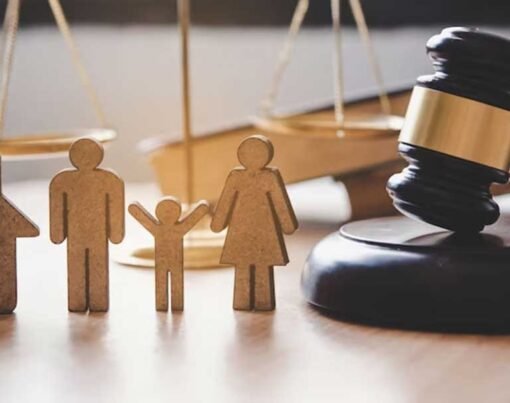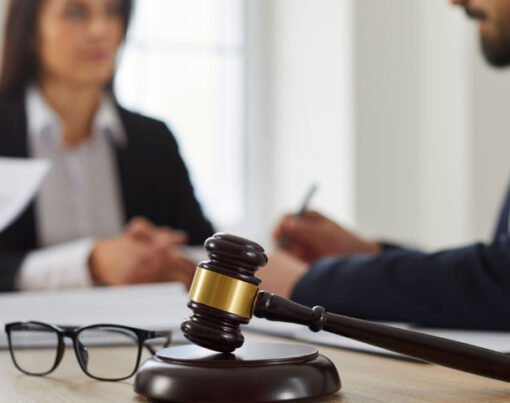Car accidents can be life-altering, leaving you with physical injuries and also with emotional and financial burdens. You must know how to navigate the legal landscape after being hurt in a car accident to protect your rights and secure the compensation you deserve. This blog explains the steps you should take immediately after an accident. You’ll learn about the importance of seeking medical attention, the role of police reports, and how to document your case effectively. By following these steps, you will be well-prepared to handle the legal aftermath of a car accident.
Table of Contents
1. Seek Immediate Medical Attention
The first and most important step after being involved in a car accident is to seek immediate medical attention. Sometimes, injuries sustained in car accidents are not immediately apparent and can manifest days or even weeks later. By seeing a doctor right away, you protect your health and create a medical record that can be used as evidence in your case. Medical documentation is crucial when dealing with insurance companies or if you need to take legal action. Adhere to prescribed treatments and follow-up appointments. Failing to follow medical advice can jeopardize your health and undermine your claim, as insurance companies may argue that your injuries are not as severe as claimed. Keep detailed records of your medical visits, treatments, and any related expenses. This will help you build a strong case and ensure that all your injury-related costs are covered.
2. Gather and Preserve Evidence
Collecting evidence immediately after a car accident can significantly impact the outcome of your claim. Take photographs of the accident scene, your vehicle, the other party’s vehicle, and any visible injuries. Photos provide a visual record that can help establish the circumstances of the accident and the extent of the damage. If there are any witnesses, obtain their contact information and, if possible, their statements regarding the accident. Witness testimonies can be invaluable in corroborating your account of the events. Keep all related documents organized and accessible. This includes police reports, medical bills, repair estimates, and any correspondence with insurance companies. Back up digital evidence and maintain physical copies in a secure location. The more comprehensive your evidence collection, the stronger your case will be when negotiating with insurers or presenting your case in court.
3. Report the Accident to the Authorities
Report the accident to the police immediately, regardless of the severity of the crash. A police report is an official record of the accident and can provide an unbiased account of the events. When the police arrive, provide them with a factual and detailed description of what happened. Avoid speculating or admitting fault, as these statements can be used against you later. Request a copy of the police report for your records. Having a police report can be particularly beneficial when dealing with insurance companies, as it provides a credible third-party account of the accident. Insurance adjusters rely heavily on police reports to determine liability and the extent of damages. Obtaining and reviewing a copy of the report can help you identify any inaccuracies or missing information that could impact your claim. If you notice any errors, request a correction promptly.
4. Communicate Effectively with Insurance Companies
Dealing with insurance companies can be one of the most challenging aspects of handling a car accident claim. Notify your insurance company about the accident as soon as possible and provide them with all necessary documentation. However, be cautious about the information you share and avoid making statements that could be interpreted as admitting fault. Stick to the facts and let your medical and police reports speak for themselves. Keep detailed records of all communications with the insurance company, including dates, times, and the names of representatives you speak with. When discussing your claim with insurance adjusters, be aware that their primary goal is to minimize the payout. Do not accept the first settlement offer without fully understanding the extent of your damages and losses. It may be beneficial to consult a personal injury lawyer before agreeing to any settlement. A lawyer can help you evaluate the offer and negotiate for a fairer amount.
5. Consult a Personal Injury Lawyer
Navigating the legal complexities of a car accident claim can be daunting, especially when dealing with injuries and recovery. Consulting reputable personal injury lawyers in MA can provide you with the expertise and support needed to handle your case effectively. A lawyer can help you understand your rights, gather additional evidence, and build a strong compensation case. They can also handle negotiations with insurance companies to ensure that you receive a fair settlement that covers all your losses.
Hiring a personal injury lawyer can also provide peace of mind, knowing that a professional is managing the legal aspects of your case. This allows you to focus on your recovery without the added stress of dealing with legal procedures and insurance companies. Many personal injury lawyers work on a contingency fee basis, meaning they only get paid if you win your case. This arrangement ensures that they are motivated to achieve the best possible outcome for you.
Handling the aftermath of a car accident can be overwhelming, but taking the right steps can make a significant difference in your recovery and compensation. Seeking immediate medical attention, gathering and preserving evidence, and reporting the accident to the authorities lay the groundwork for a strong case. Effective communication with insurance companies and consulting a personal injury lawyer further enhance your ability to secure a fair settlement. Each step you take is crucial in protecting your rights and ensuring that you receive the compensation you deserve. Taking proactive measures after a car accident is essential for your health, financial well-being, and peace of mind.










